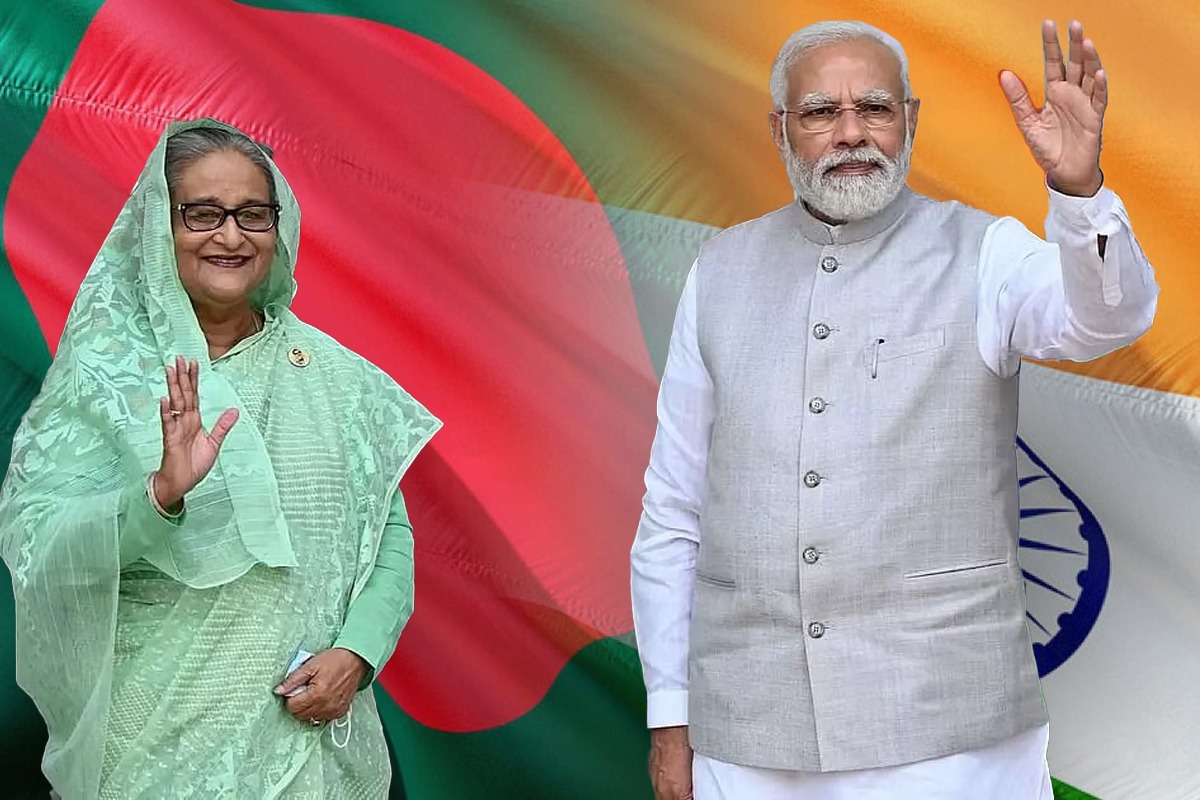

NEW DELHI: In a largely expected outcome, Sheikh Hasina, the incumbent Prime Minister of Bangladesh, secured a decisive victory in the 12th general polls, clinching her fifth consecutive term in office. While the political landscape in Bangladesh undergoes a familiar transition, the implications of Hasina’s win extend beyond its borders, with India closely observing the developments. Here’s why Sheikh Hasina’s re-election matters significantly for India.
One of the critical aspects that make Hasina’s victory crucial for India is the sustained political stability she has provided to Bangladesh over the years. Despite facing criticism for her approach to dissent, Hasina’s supporters argue that she has ushered in a sense of confidence and stability in the nation. This stability is vital for India’s national security, as Bangladesh, with its 4,100-km border, shares a history of housing anti-India elements and Islamist jihadist groups.
Under Hasina’s administration, Bangladesh has cooperated extensively with Indian security agencies to counteract terrorist and militant activities. The signing of the 1974 Land Boundary Agreement during Hasina’s tenure further solidified the bilateral relations, resolving a longstanding border dispute.
With the deteriorating situation in neighbouring Myanmar, Bangladesh’s role in maintaining peace in the region becomes even more critical. Hasina’s sensitivity to India’s security concerns has been pivotal, ensuring that the two nations can collaborate on regional challenges while fostering economic ties.
In a report by Hindustan Times, former Indian Ambassador Ashok Kantha highlighted this, emphasising Dhaka’s understanding that maintaining New Delhi’s security is paramount for regional stability. The alternative, a return of the Bangladesh Nationalist Party (BNP) under Khaleda Zia, could potentially strain India-Bangladesh relations, given Zia’s perceived hostility towards India.
Economically, Hasina’s win is significant for India. Bangladesh has emerged as the second-largest economy in the region, surpassing Pakistan. The economic ties between India and Bangladesh have been on an upward trajectory, with bilateral trade reaching $14.2 billion in 2022-23.
India has been a key contributor to Bangladesh’s economic growth, offering over $7 billion in Line of Credit for infrastructure and development projects since 2010. Moreover, Bangladesh’s GDP of $460 billion in 2022 positions it as an attractive market for Indian goods, fostering mutual economic benefits.
Beyond politics and economics, Sheikh Hasina’s personal ties with India are deeply rooted. Having sought refuge in Delhi for six years following the tragic massacre of her family in 1975, Hasina sees India as more than just a neighbour. India provided her with sanctuary during a tumultuous period, creating a bond that goes beyond diplomatic relations.
Therefore, New Delhi, for Hasina, is not merely a capital; it is a place that sheltered her during times of adversity. This personal connection adds a unique dimension to India-Bangladesh relations, strengthening the foundation of understanding and cooperation between the two nations.